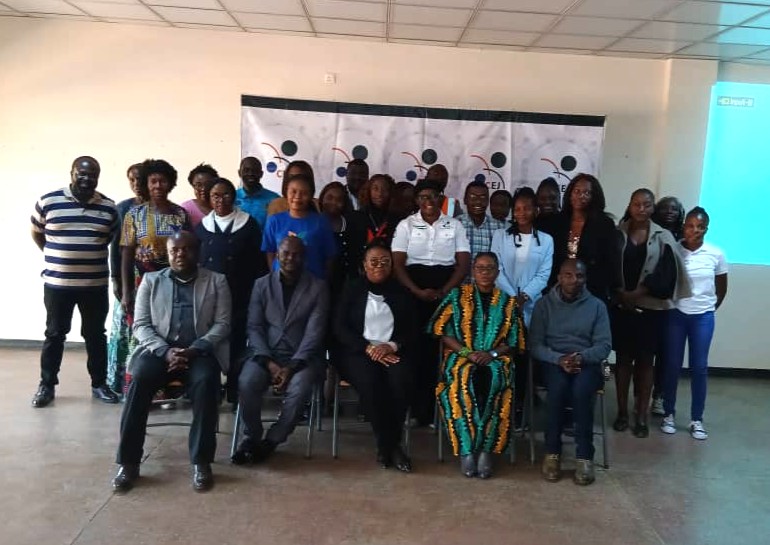2025-2026: Resilient Women for Climate Action and Environmental Justice (RW4CAEJ)

Project Summary
The Centre for Environment Justice (CEJ) is advancing the Resilient Women for Climate Action and Environmental Justice (RW4CAEJ) project to empower women environmental rights defenders (WERDs) and local communities in Zambia, particularly in Lufwanyama District in the of the Copperbelt Province. Rooted in CEJ’s founding mandate to champion environmental justice for marginalized groups, the project addresses the disproportionate impacts of climate change and environmental degradation on women, girls, and persons with disabilities. This project is generously funded by the Carter Centre Foundation.
Through training, mentorship, advocacy, and community mobilization, RW4CAEJ aims to strengthen women’s leadership, agency, and participation in climate and environmental decision-making processes. Building on CEJ’s legacy of initiatives such as the SheRise Campaign and Environmental Protection Dialogue (EPD), the project promotes inclusive and gender-transformative approaches to environmental governance. Aligned with the principles of the Carter Centre, the project underscores the need for equitable access to natural resources, transparent land tenure systems, and protection mechanisms for environmental defenders. By fostering collaboration with traditional leaders, civil society, and global partners, RW4CAEJ seeks to create safer, more sustainable communities where women are not just beneficiaries but leaders in shaping Zambia’s climate resilience and environmental justice agenda.
Project Objectives
- Empower Women Environmental Rights Defenders (WERDs):
Build the knowledge, advocacy, and leadership skills of women to effectively engage in climate action, environmental protection, and policy dialogues at community, national, and international levels. - Strengthen Inclusive Climate Governance:
Promote gender-responsive and socially inclusive frameworks for climate change adaptation, land governance, and natural resource management, ensuring that women and marginalized groups are meaningfully represented. - Enhance Community Advocacy and Awareness:
Increase public understanding of environmental rights, climate justice, and safeguarding through advocacy campaigns, mentorship programs, and media engagement. - Foster Strategic Partnerships and Policy Influence:
Engage traditional leaders, civil society, government, and international partners to champion women’s environmental rights and amplify their participation in decision-making processes. - Institutionalize Monitoring, Evaluation, and Learning (MEL):
Implement strong MEL, GESI, and safeguarding mechanisms to track project progress, ensure accountability, and measure the impact of interventions on women’s empowerment and environmental justice outcomes.
Empower Women Environmental Rights Defenders: HRH Cheiftainess Msoro VII at the 2020 Climate and Environment Justice Rally
Women Lead Climate Action in Lufwanyama, Copperbelt Province
